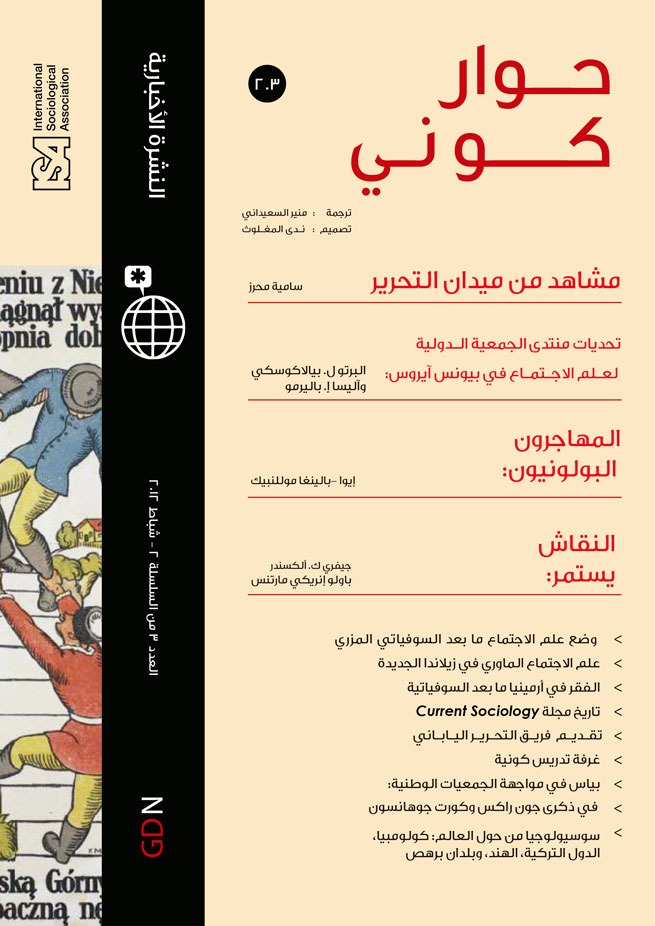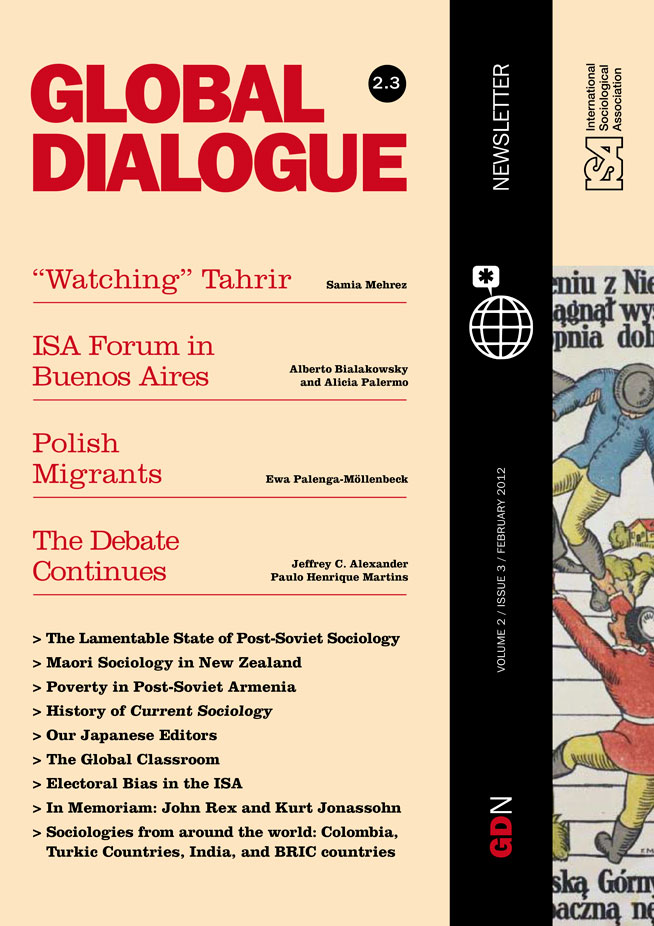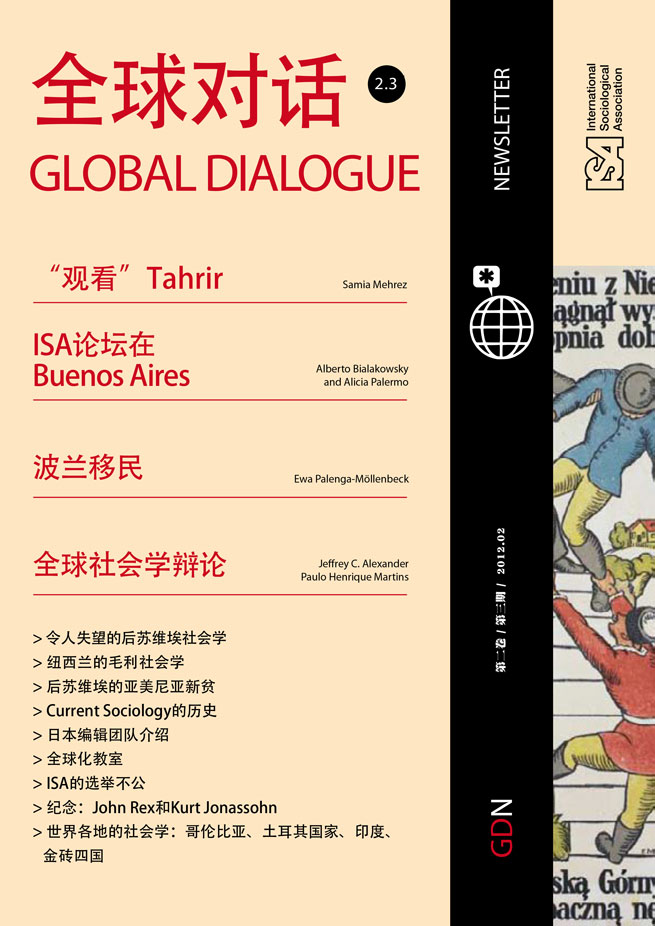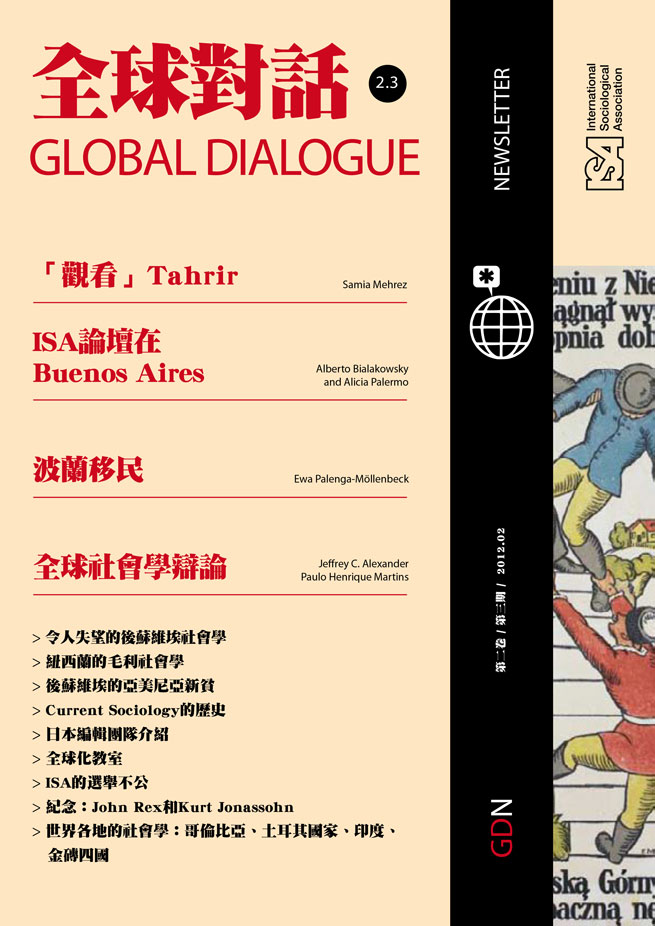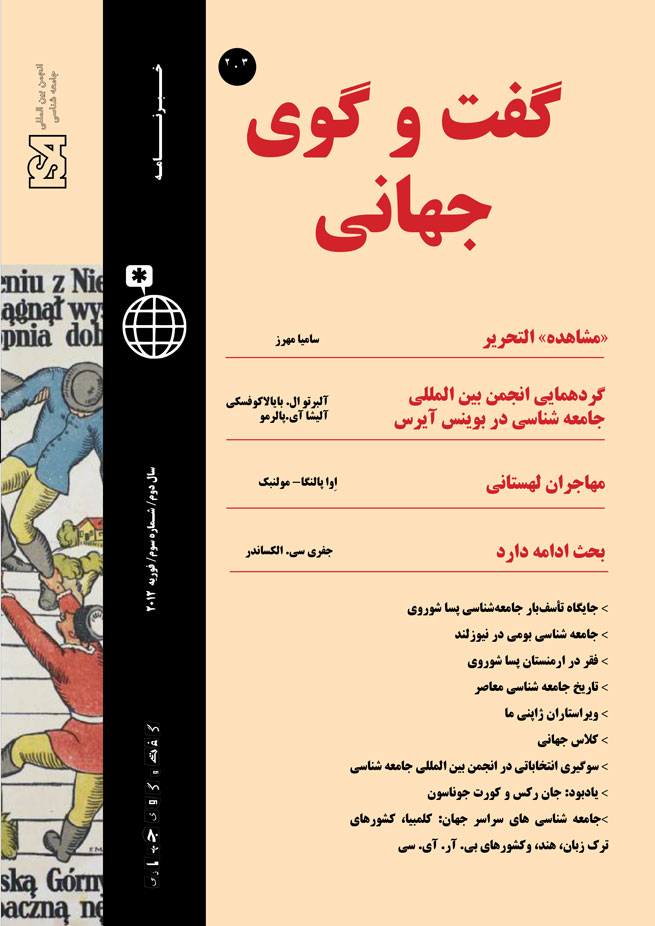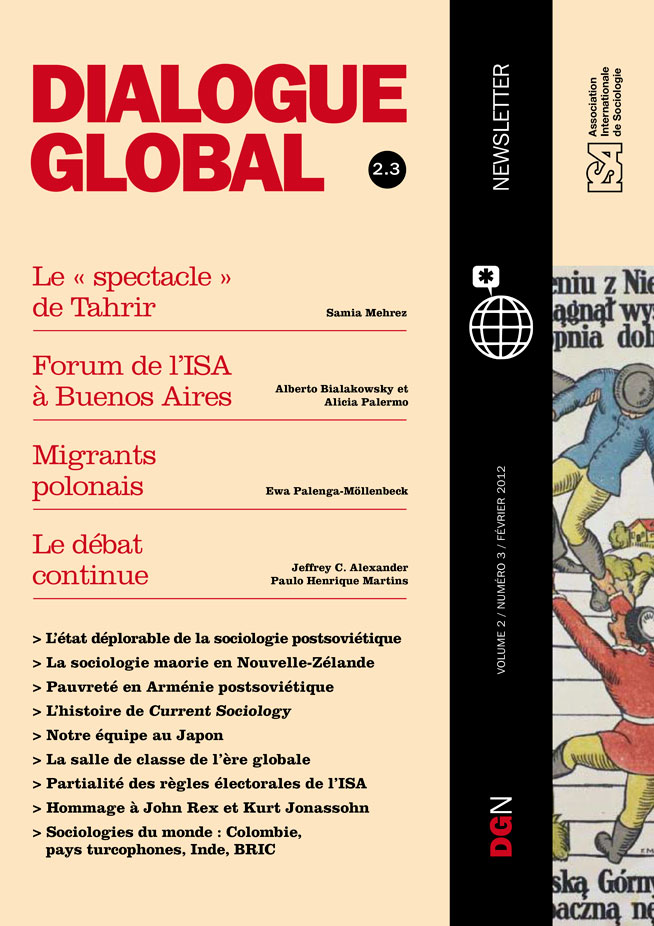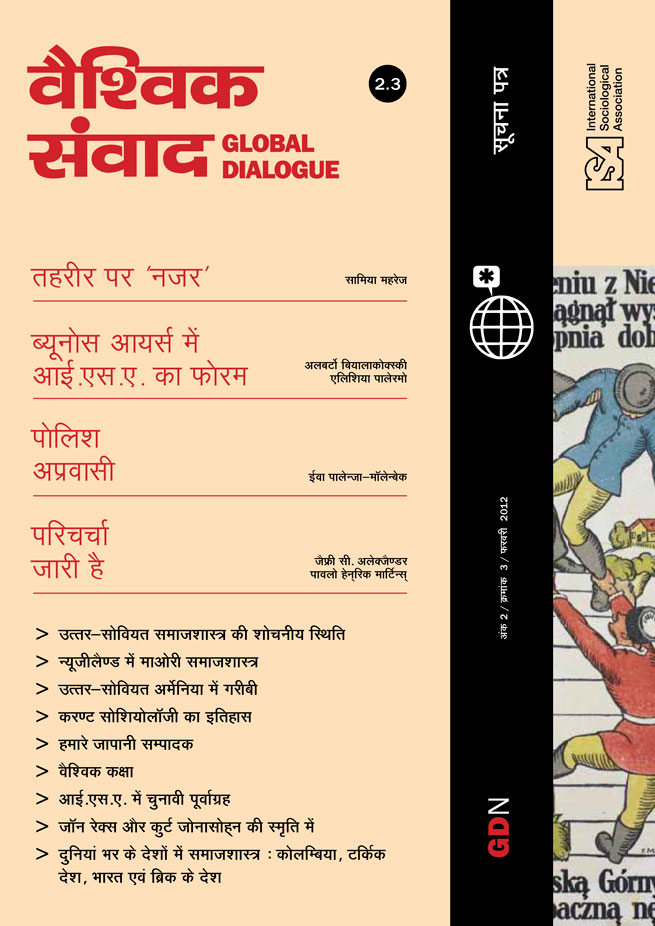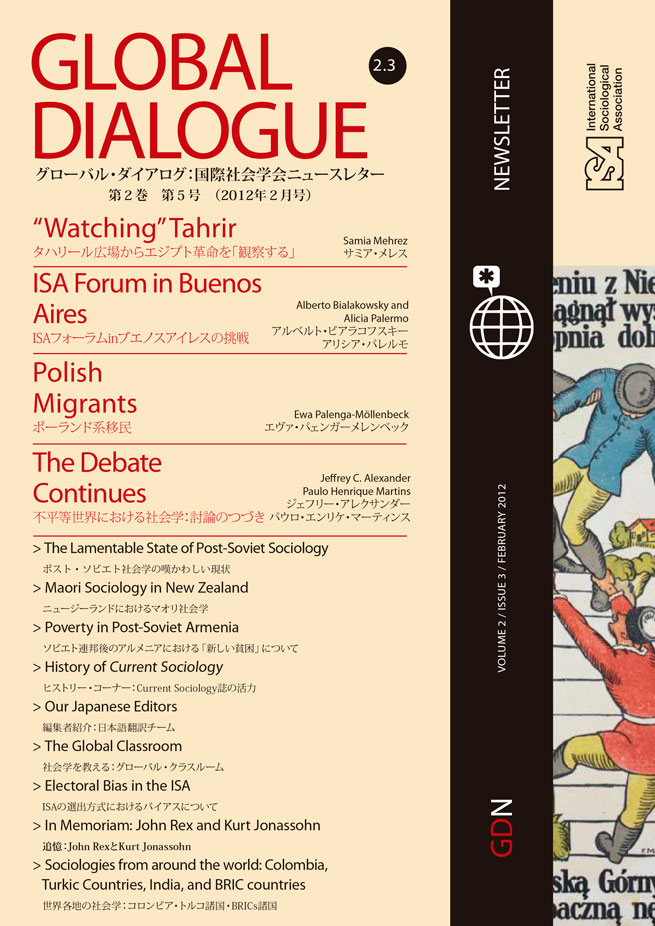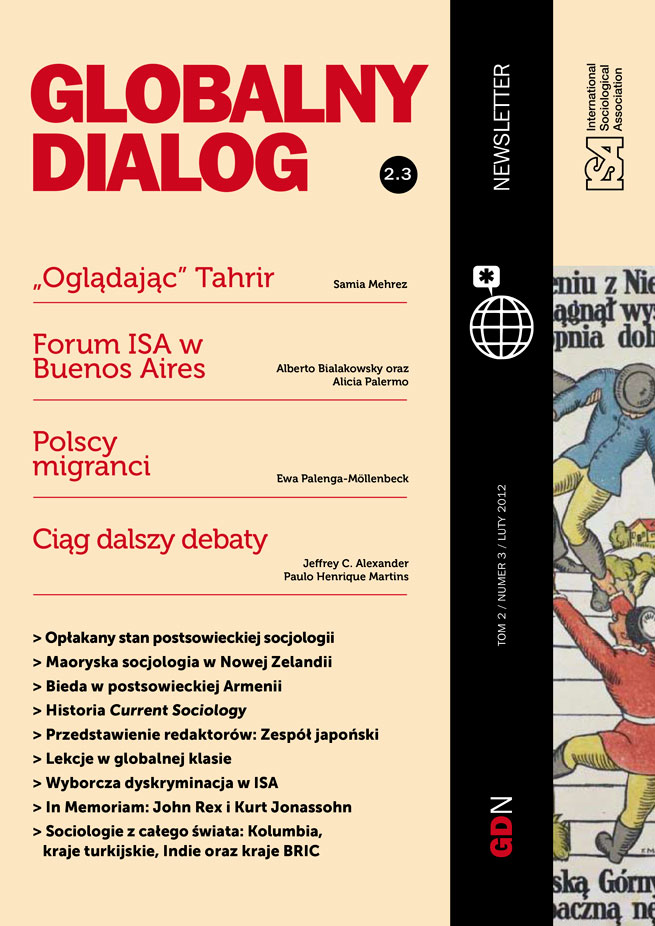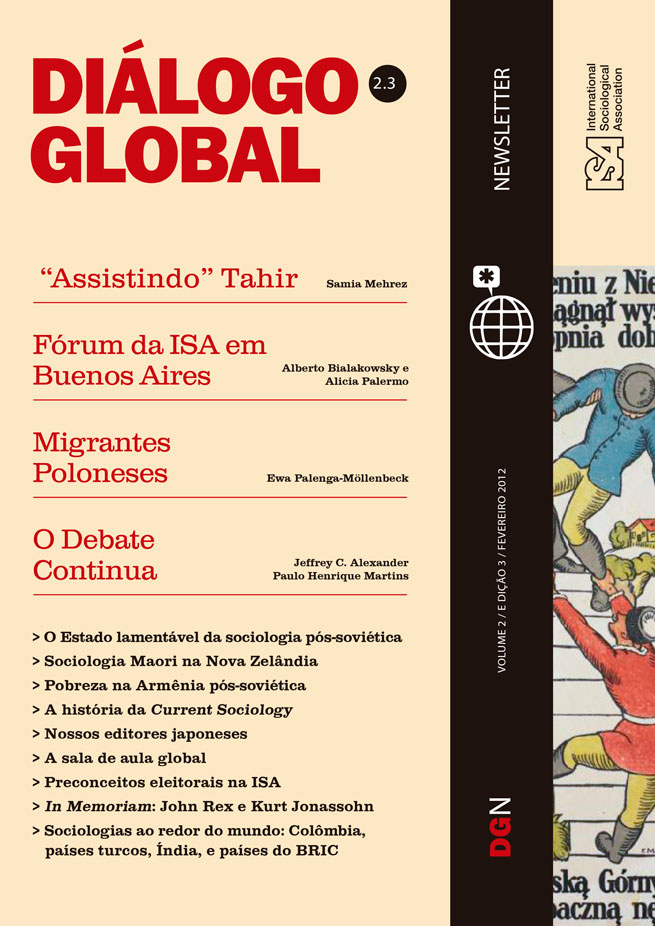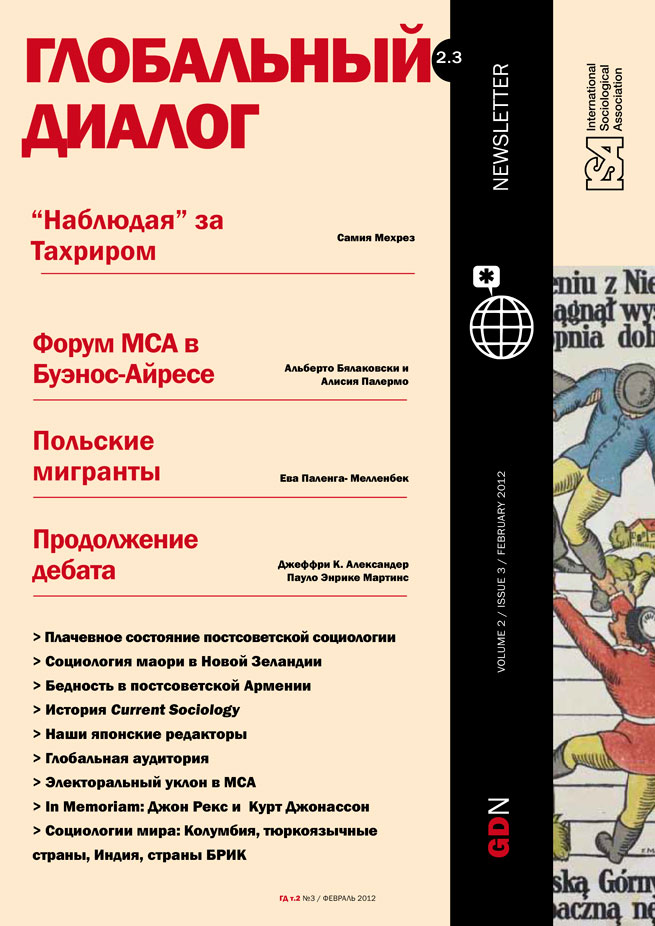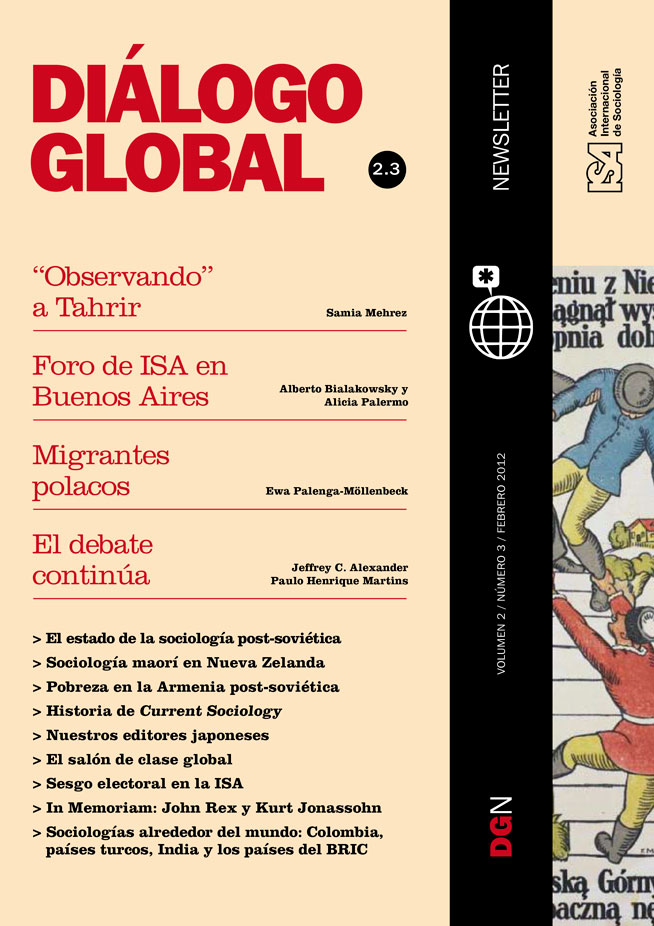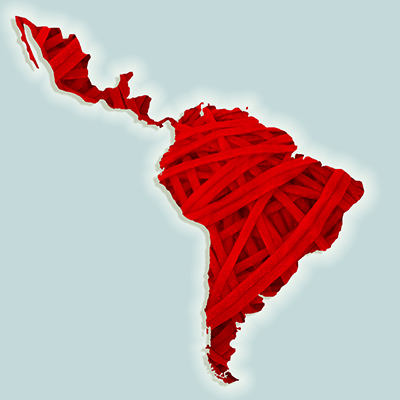Read more about Debate: Sociology in an Unequal World

Local Cosmopolitanism
by Jeffrey C. Alexander
March 01, 2012
Globalization is creating new spaces of knowledge production that are changing the traditional intellectual division of labor dominated by Europe as the privileged center for thinking about modernity. For some authors, such as Arjun Appadurai, the “Third World” no longer functions as a data mill for the “North,” and, as a result, the “North” has lost its hegemony as the producer of ideas for the “South.” In this new vision globalization appears as a plurality of fields, constructing sociological knowledge through complex geographic processes that cross national borders without eliminating nations as a locus of knowledge production.
Thinking particularly about Latin America, the globalization of knowledge is contributing to an important change in the epistemological foundations of academic sociology. In the first period, between the 1940s and 1980s, critical thought was largely conditioned by the representation of globalization as economic and political dependency. This is reflected in two principal currents of thought at the time. The first was structuralism, inspired by the Economic Commission for Latin America and the Caribbean (CEPAL), an institution founded in 1948 to think about regional economic development. Among its major theorists were two economists, the Argentinean Raúl Prebisch and the Brazilian Celso Furtado, who defended the importance of the State as an agent of development to counteract deteriorating terms of international trade that jeopardized countries producing raw materials. CEPAL brought the center-periphery distinction to the debate about development. A second current, Dependency Theory, articulated by such authors as Theotonio dos Santos, R. M. Marini, Fernando Henrique Cardoso, Enzo Faletto among others, developed the political aspects of CEPAL’s analysis of center-periphery relations. They argued that overcoming dependency hinges on particular alliances among national bourgeoisie, international bourgeoisies and various popular classes.
In more recent times, from the 1980s to the present, sociology has incorporated diverse understandings of globalization. On the one hand, there are neoliberals who argue that economic globalization would eliminate differences between “center” and “periphery,” leading to the decline of national societies and the strengthening of economic, financial, technological and cultural uniformity. In this discourse of uniformity, influenced by abstract economic theories, sociology neglects the importance of politics and cultural differences, hyper-valorizing global consumption. For the neoliberals the discourse about dependency is outdated. On the other hand, there are post-dependency theorists who claim that dependency relations are being re-organized as a form of “coloniality” of power and knowledge, rethinking the contradictions between “rich societies” and “poor societies” in the world system. Theorists of “coloniality” realize the impossibility of adopting Eurocentric theories without considering the social, economic, political, cultural and religious particularities of “Southern” societies. This second “post-colonial” tendency of Latin American thought recognizes the historic clash of colonialism and anti-colonialism but also brings to light new means of control and domination on a global scale.
Post-colonial theory of Latin America does not regard the terms “colonialism” and “anti-colonialism” as mere historical legacies of the “Occident.” For them, these expressions are the elements of a cognitive and linguistic strategy, entailed in what Boaventura de Sousa Santos and others call “zone of contact,” necessary to understand diverse experiences and ideas within the world system. Colonialism and anti-colonialism function as two surfaces in the mirror of globalization, mediating the translation of information, images, and ideas between “North” and “South.” For these authors, globalization involves a complex process of translation operating in global forums and movements, in international publishing, and in international associations like the ISA and ALAS (Latin American Sociological Association). In these contexts, the political, moral, aesthetic, ethical and linguistic elements of social life thrive, incrementally advancing new modalities of exchange between diverse centers of knowledge production. The prestige of such Latin American authors as Casanova, Quijano, Lander, as well as such Northern figures as Immanuel Wallerstein demonstrate that new theories of colonialism are gaining ground.
Finally, we must remember that post-colonial societies have not been subject to uniform cultural, historical and political forces within the colonial process of globalization. Indeed, we propose that one of the particularities of academic sociology in Latin America is an expectation shared by many intellectuals that this region can become a possible community of destiny. Through this lens, it must be noted that the expression “Latin America” is symbolically incorrect as it emphasizes a linguistic community formed through colonialism, namely “Latinos,” which excludes other communities of historic importance such as indigenous peoples, ex-slaves of African origin, non-Latin European immigrants, and Asians. The understanding of Latin America as a possible community of destiny is a utopia gaining force, stimulating academic exchange and giving unity to a regional sociology.
Paulo Henrique Martins, Federal University of Pernambuco, Brazil, and President of the Latin American Sociological Association
This issue is not available yet in this language.
Request to be notified when the issue is available in your language.
If you prefer, you can access previous issues available in your language:
